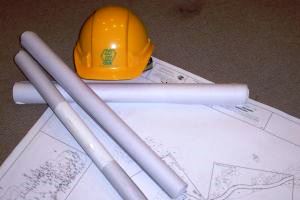Regardless of their size, construction projects can present complex issues in terms of insurance, and builder’s risk coverage plays a crucial role in limiting these types of exposures. Builder’s risk insurance is a type of property insurance that is specifically designed to cover property during the course of construction, which includes repair and renovation. Standard property policies typically do not cover all of the risks inherent in this type of work, such as the theft of contractors’ equipment from the job site or the damage of construction materials. In these cases, you could be responsible for the loss without builder’s risk insurance coverage.
Generally, the property owner or contractor purchases this type of coverage, but regardless of who makes the transaction, all parties that have property involved in the project should be named in the policy. This may include but is not limited to the owner, contractor, subcontractors, financial institution funding the project, and in some cases, the engineers and architects. Upon completion of the project and/or acceptance by the owner, your regular property policy will kick in. However, it’s important to understand that builder’s risk coverage only deals with the property; it does not provide coverage in the event of a work-site injury or design/construction defect. For these types of losses, you would need to rely on liability and workers’ compensation insurance for coverage.
What is the Policy Period?
When it comes to builder’s risk insurance, one of the most common questions is when the coverage begins and ends. Review the following points to help you better understand the policy period:
Commencement of Coverage – Builder’s risk insurance provides coverage for property during the course of construction, repair, or renovation, but at what point do these types of jobs technically begin?
 In most cases, contracts require that coverage be provided for the duration of the contract period, which means that the policy inception date would be the date the contracts are signed.
In most cases, contracts require that coverage be provided for the duration of the contract period, which means that the policy inception date would be the date the contracts are signed.- It’s also possible for the lender to specify the inception date.
- In either case, be sure to review insurance policy provisions with your agent to determine whether there are any restrictions on when coverage begins. Depending on the specific policy, it may state that the coverage begins when construction commences or that the insurance company will cover losses when you become legally responsible for the property, either on or after the effective date. Prior to beginning any work, it’s wise to review the policy with your insurance agent to ensure that there aren’t any restrictions on the commencement of coverage.
Coverage Expiration – It can be equally complicated to determine when builder’s risk insurance coverage expires. These types of policies can contain provisions that terminate coverage prior to policy expiration, typically stating that coverage will end at the earliest of the following:
- The policy expires or is cancelled;
- The property is accepted by the purchaser;
- Your interest in the property ceases;
- You abandon the construction without intending to complete it;
- Unless specified otherwise in writing:
- 90 days after construction is complete, or
- 60 days after construction is complete and building described in the declaration is occupied in whole or in part, or put to its intended use.
Learn More About Builder’s Risk Insurance in NH & Get a Free Quote!
Builder’s risk insurance coverage can be complex, but an agent who understands your business can knowledgeably help you secure a policy that meets your needs and covers the specific exposures you face. If you’re preparing to begin a construction project and are in need of builder’s risk insurance in NH, give us a call today at 603-882-2766 or submit our online quote form
In addition to Nashua, NH, where our offices are located, we are pleased to assist you with builder’s risk insurance in Hudson, Hollis, Brookline, Litchfield, Amherst, Milford, Merrimack, Bedford, Manchester, Concord, Goffstown, Derry, Salem, Londonderry, Windham, Wilton, Mont Vernon, and all of New Hampshire.

